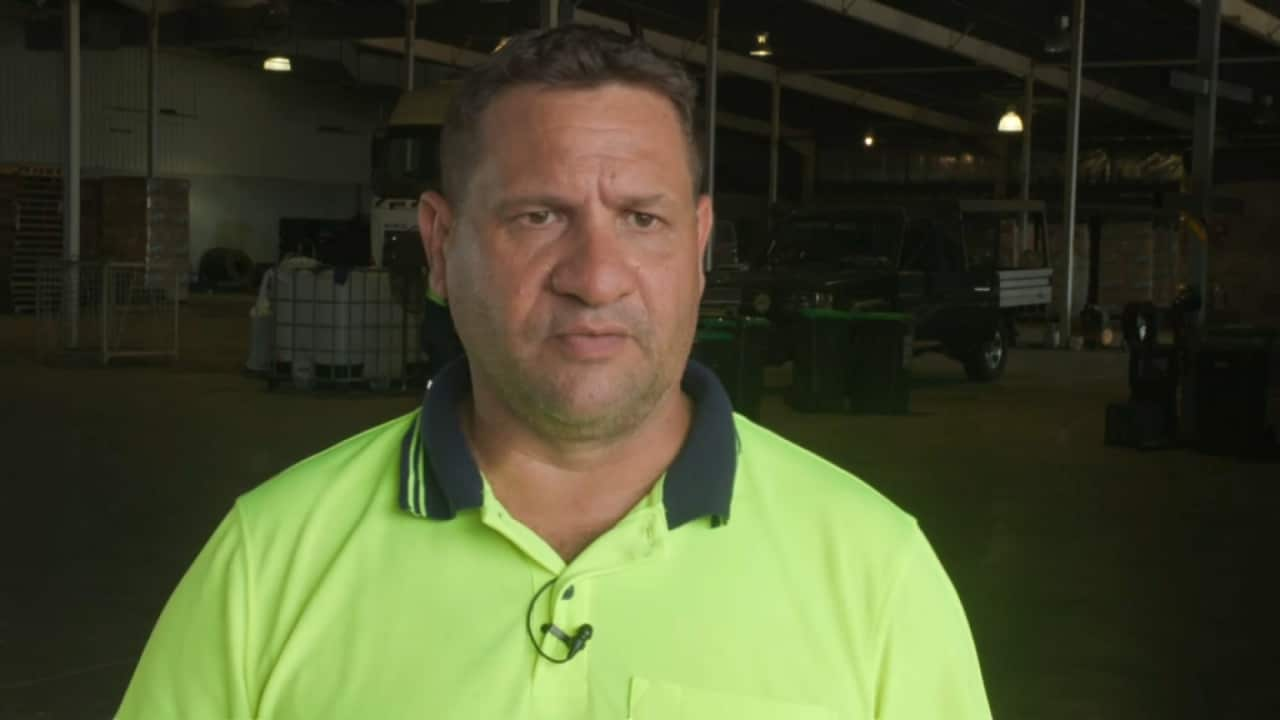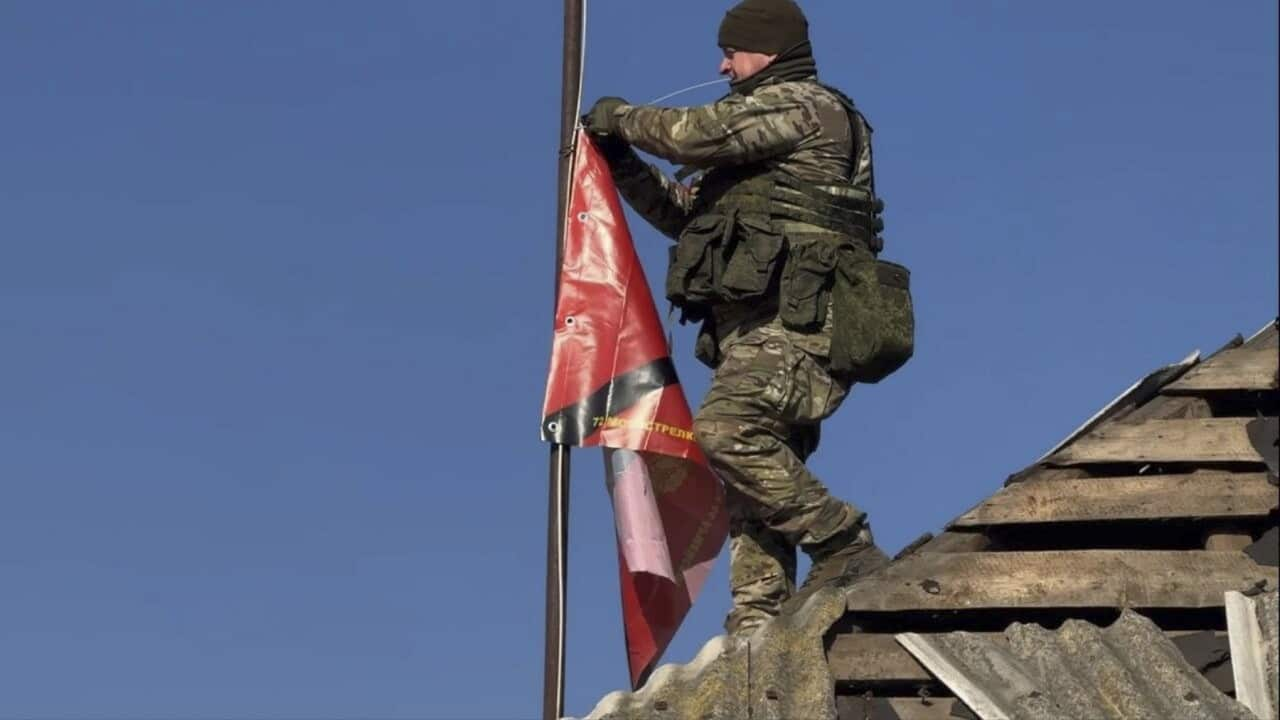Italiano
Beatriz Flamini entrava nella grotta di Motril, nel sud della Spagna tre mesi prima che il Presidente russo Vladimir Putin invadesse l’Ucraina.
Per 500 giorni, è rimasta 70 metri sotto terra, eccezion fatta per una settimana in cui dovette resettare il router di internet, che era la sua linea di emergenza.
Circa due mesi dal suo ingresso sotto terra ha perso il conto del tempo – ed ha smesso di contare i giorni.
Quando le è stato chiesto se avesse mai pensato di smettere, la 50enne alpinista ed arrampicatrice ha risposto che era il contrario – trovava difficile lasciare.
(Spanish* then translated into English): "Never. In fact, I did not want to come out.”
Una volta che Flamini è uscita dalla grotta, il 14 aprile, erano terminati eventi chiave, inclusa la fine dell’obbligo di indossare la mascherina durante il COVID-19 in Spagna e la morte della regina britannica Elisabetta II.
Ha anche passato due compleanni da sola sotto terra. Ma ha detto che il tempo senza contatti con il mondo esterno è sorprendentemente volato.
Uscendo alla luce del sole con un sorrisetto, ha descritto l’esperienza “eccellente, imbattibile”.
(Spanish* then translated into English): "I am still anchored in November 21, 2021 and I don't know what has happened in the world. I don't know. I have come out of the cave. I have no idea what happened, for me it is still November 21, 2021 and seeing you all in masks, for me there is still COVID.”
Tutto questo era parte di un esperimento per studiare l’impatto dell’isolamento sociale sulla mente umana e i modelli dei ritmi circadiani del sonno.
Flamini è stata monitorata da un gruppo di psicologi, ricercatori e specialisti nello studio delle grotte. Preparatori atletici hanno anche monitorato il suo benessere fisico e mentale.
A detta della sua squadra di supporto, Flamini ha passato il suo tempo sotto terra facendo esercizio, ma anche disegnando, leggendo e lavorando a maglia.
Ha letto 60 libri e consumato 1000 litri d’acqua.
L’esperienza è immortalata in due camere GoPro che aveva con sé. Il girato sarà parte di un documentario della casa di produzione spagnola Dokumalia, che era stata contattata da Flamini con la sua idea, ispirata dalla sua serie Rescate, Rescue in inglese.
Flamini ha detto che in tutto il tempo nella grotta, si è concentrata sul riacquisire “coerenza”, sul mangiar sano e sull’apprezzamento del silenzio.
Ma ha ammesso che ci sono stati momenti difficili, incluse allucinazioni acustiche e il recupero dopo un’invasione di mosche nella grotta.
(Spanish* then translated into English): "So it is true that there have been difficult moments and it is true that there have been very nice moments and both, both have been the ones that have made me fulfil the 500 days, which was my purpose inside a cave."
Per supportarla durante il suo lungo tempo sotto terra, i membri della squadra hanno lasciato cibo e altre necessità in un punto di raccolta, ed hanno recuperato qualsiasi cosa lei lasciasse.
Flamini ha detto che si è impegnata ad aiutare i dottori e gli scienziati a capire il pieno impatto del suo tempo sotto terra sul suo corpo e la sua mente.
Ma per ora, ha detto che ci sono un po’ di semplici cose che non vedeva l’ora di fare.
(Spanish* then translated into English): "Forgive me if I can’t speak properly, okay, but I have been a year and a half without speaking and then it is difficult for me to follow this all. When you do a project you imagine everything and that goes into the project. You must accept it and smile. You are there for that too and enjoy it, enjoy the positive things that the experience gives you, of wanting to hug someone, of wanting to eat fried eggs and chips, everything. I was there to enjoy."
La squadra di supporto crede che l’esperimento fissi un record del mondo per il maggior tempo passato in una grotta – la cui conferma ufficiale è in sospeso.
Il Guinness World Records non ha confermato se hanno mai certificato un record per il maggior tempo trascorso volontariamente a vivere in una grotta.
Il titolo di "maggior tempo sopravvivendo intrappolato sotto terra” è stato attribuito a 33 minatori cileni e boliviani che sopravvissero 69 giorni dopo che una miniera di rame e d’oro franò in Cile nel 2010.
English
When Beatriz Flamini entered the cave in Motril, southern Spain it was three months before Russian President Vladimir Putin invaded Ukraine.
For 500 days, she stayed 70 metres underground, except for one week when she needed to reset the internet router that was her emergency line.
About two months into her time underground, she lost track of time - and stopped counting the days.
When asked if she ever thought about giving up, the 50-year-old mountaineer and climber said that to the contrary - she found it difficult to leave.
(Spanish* then translated into English): "Never. In fact, I did not want to come out.”
By the time Flamini exited the cave 14 April local time, key milestones had passed, including the end of COVID-19 mask requirements in Spain and the death of Britain’s Queen Elizabeth II.
She also marked two birthdays alone underground. However, she says the time without contact with the outside world surprisingly flew by.
Emerging into the sunlight with a grin, she described the experience as "excellent, unbeatable".
(Spanish* then translated into English): "I am still anchored in November 21, 2021 and I don't know what has happened in the world. I don't know. I have come out of the cave. I have no idea what happened, for me it is still November 21, 2021 and seeing you all in masks, for me there is still COVID.”
It was all part of an experiment studying the impact of social isolation on the human mind and circadian rhythms sleep patterns.
Flamini was monitored by a group of psychologists, researchers and specialists in the study of caves. Physical trainers also tracked her physical and mental wellbeing.
According to her support team, Flamini spent her time underground doing exercises, as well as painting, reading and knitting.
She got through 60 books and consumed 1,000 litres of water.
The experience is captured in two GoPro cameras she had with her. The footage will form part of a forthcoming documentary by Spanish production company Dokumalia, who was approached by Flamini with the idea, inspired by their own series Rescate; Rescue in English.
Flamini says that throughout her time in the cave, she focussed on retaining "coherence," eating well and relishing the silence.
But she admits there were difficult moments, including auditory hallucinations and recovering after an invasion of flies in the cave.
(Spanish* then translated into English): "So it is true that there have been difficult moments and it is true that there have been very nice moments and both, both have been the ones that have made me fulfil the 500 days, which was my purpose inside a cave."
To support her during the prolonged time underground, team members dropped off food and other necessities at a retrieval site and picked up whatever she left there.
Flamini says she is committed to helping the doctors and scientists understand the full impact of her time underground on her body and mind.
But for now, she says there are a few simple things that she's been looking forward to.
(Spanish* then translated into English): "Forgive me if I can’t speak properly, okay, but I have been a year and a half without speaking and then it is difficult for me to follow this all. When you do a project you imagine everything and that goes into the project. You must accept it and smile. You are there for that too and enjoy it, enjoy the positive things that the experience gives you, of wanting to hug someone, of wanting to eat fried eggs and chips, everything. I was there to enjoy."
The support team says they believe the experiment sets a world record for the longest time spent in a cave - official confirmation of that is pending.
Guinness World Records has not confirmed whether they have been documenting a record for the longest time spent voluntarily living in a cave.
It has awarded the title of the "longest time survived trapped underground" to 33 Chilean and Bolivian miners who survived 69 days underground after a copper-gold mine collapsed in Chile in 2010.
Report by SBS News.




